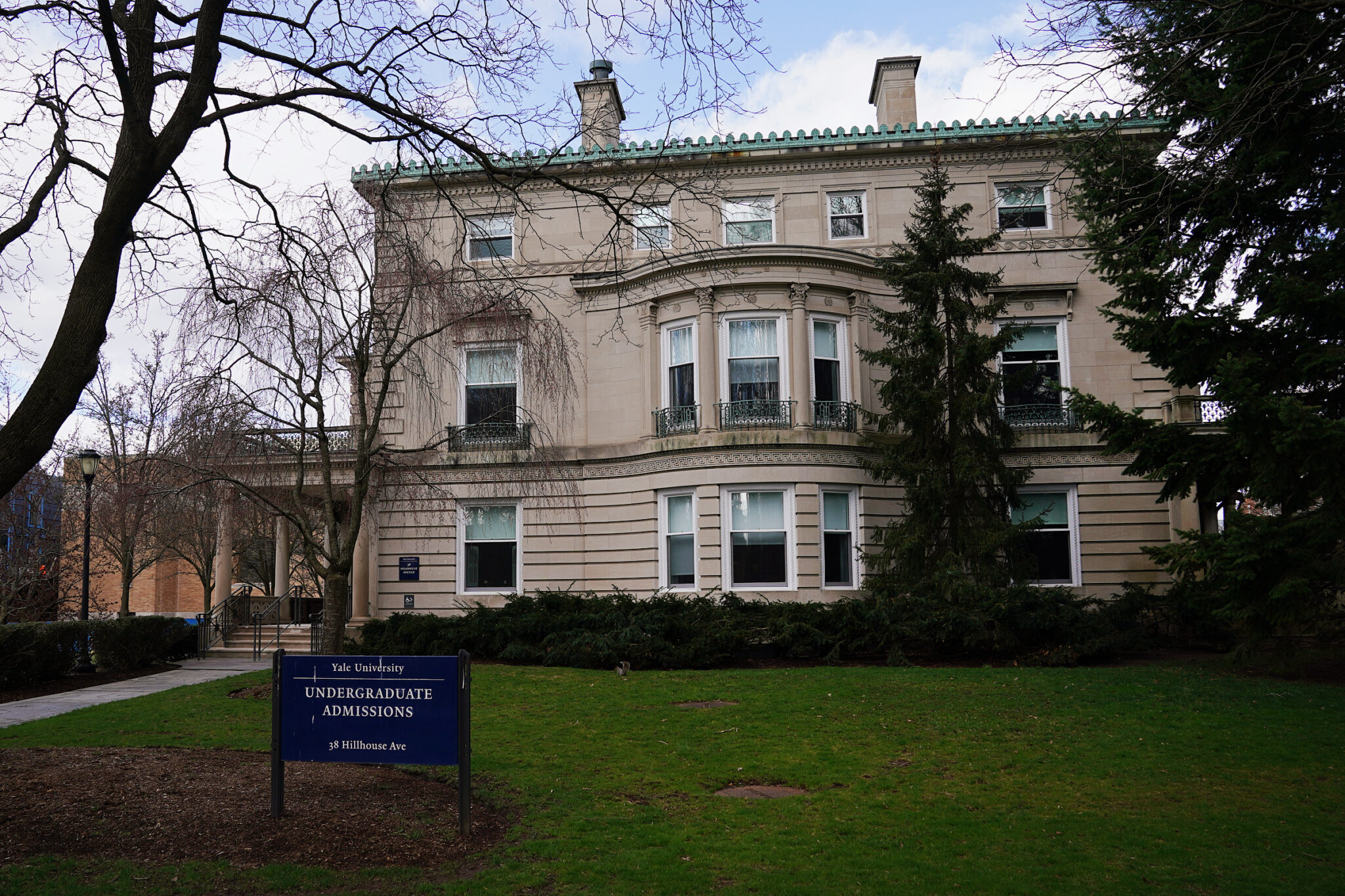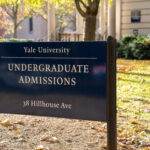International students describe unequal access to standardized test centers
A News survey found that international respondents who receive financial aid were less likely to have taken a standardized test when applying to college than respondents paying full price to attend Yale. The News spoke to several international students who said that difficulty accessing test centers and affording the tests were part of the reason why.

Tim Tai, Senior Photographer
As Yale’s final decision on their standardized testing policy for admissions — which is set to be released soon — looms, several international students spoke with the News about difficulty accessing standardized test centers in their home countries.
Since going test-optional in 2020, Yale has seen a disproportionate increase in applications from international students. In the past three application cycles — excluding the current year — applications from international students increased at three times the rate of increase of domestic applicants.
In a survey conducted earlier this month about the experiences of students taking standardized tests, the News received 110 responses from international students. For domestic respondents, 95 percent who took the survey reported that they took a standardized test before college, as opposed to 83 percent of international respondents.
Several international students told the News that for them, inability to access the tests was a bigger concern than deciding whether to submit their scores. Students said that access to ACT and SAT test centers was sparse and tended to favor wealthier students.
“I am a low-income student, so that meant that I struggled with the access part,” said Jesse Okoche ’25, who is from Botswana. “I want [the admissions office] to be considerate of the fact that not everybody has access to [the tests].”
Tajrian Khan ’27, who receives almost full financial aid to attend Yale, said that he is the only student from Bangladesh in his year and the first person from his school to ever attend the University. Khan described a litany of obstacles to taking the SAT in Bangladesh.
He explained that he remembers only seven test centers operating in all of Bangladesh when he was applying. He said that the centers were located in private schools in the two largest cities, making students from other areas of the country to bear travel costs. He recalled that the SAT cost the equivalent of 109 dollars to take, which he said his family could afford because both his parents worked. But Khan pointed out that the average monthly income in Bangladesh –– which was the equivalent of around $295 in 2022 –– makes the price difficult for most families.
Khan said that he thinks standardized tests should not be optional because they provide an important metric to evaluate international applicants. However, he stressed that changes should be made to make the tests accessible to lower-income international students.
“If you’re low income in the U.S., you get to take the test for free,” Khan said of free testing days offered in many U.S. high schools. “That should be the same for internationals, because so many people just can’t take the test. It’s a huge burden.”
The survey also found that international respondents who receive no financial aid from Yale — wealthier international students — were more likely to have taken a test than those who receive aid, the gap being especially pronounced for those receiving a large amount of aid. Of international respondents who do not qualify for financial aid, 89 percent took the test, in contrast to 75 percent of respondents receiving full or almost full aid.
Per data available in Yale’s Common Data Set, and confirmed by Director of Undergraduate Financial Aid Kari DiFonzo, 64 percent of international students at Yale College overall receive some amount of financial aid.
“The admissions office is, of course, familiar with the challenges associated with accessing test administration sites outside of the U.S.,” Dean of Undergraduate Admissions and Financial Aid Jeremiah Quinlan wrote in an email to the News. “It is not surprising that removing a testing requirement would be associated with a large increase in applications from international students.”
Earlier this month, Dartmouth College announced that it will resume its standardized test requirement for applicants in the next admissions cycle.
Okoche said that when he was first applying to college, there was only one SAT or ACT test center in all of Botswana. He said the center was five hours away from his home and extremely difficult to access.
Because his grades and extracurricular activities were strong and the journey to take the test was long and pricey, Okoche said he decided not to take an ACT or SAT and applied without test scores to all U.S. colleges.
He was not accepted to any U.S. private four year colleges straight out of high school and ended up spending two years at a Massachusetts community college before transferring to Yale last fall. Okoche said that he also did not include test scores when applying to Yale as a transfer student.
AJ Nakash ’26 traveled to Florida, where he had family, on two separate occasions to take the test after numerous SATs were canceled in his home country of Jamaica.
Tian Hsu ’26, who went to a private high school in London, said that the inaccessibility of test centers outside of the U.S. is a process that tends to favor wealthier international students who come from private schools and have the resources to take the exams no matter the cost of travel, preparation or missing school.
She recalled counselors at her high school telling students that, even though U.S. colleges were test-optional, omitting scores from their applications would put them at a disadvantage, because the schools “knew they had the resources” to take the tests and do well.
By “resources,” Hsu said, they were referring to the fact that she and her peers had the financial means to travel as far as necessary to access a test center.
“I think the most distinctive thing about the international experience taking the ACT, and maybe the SAT as well, is the fact that it’s definitely not going to be easy to take, but you’re expected to take it anyway,” Hsu told the News.
Overall, Hsu said that it tends to be international students with the resources to travel long distances who have the ability to access test centers.
“For Yale to reinstate their testing requirement, it’s like saying to that one international student who couldn’t take it that there is no place for them here,” Okoche said. “Just because they don’t have access to that one required thing, not because they aren’t good enough.”
Yale instituted need-blind admissions for international students in 2000.








